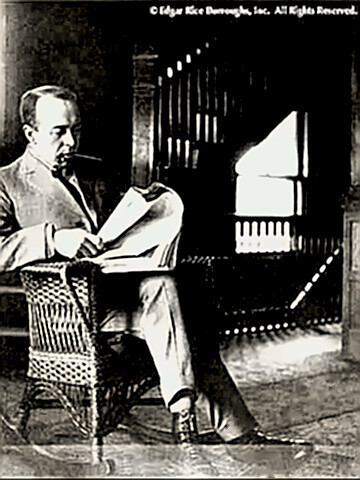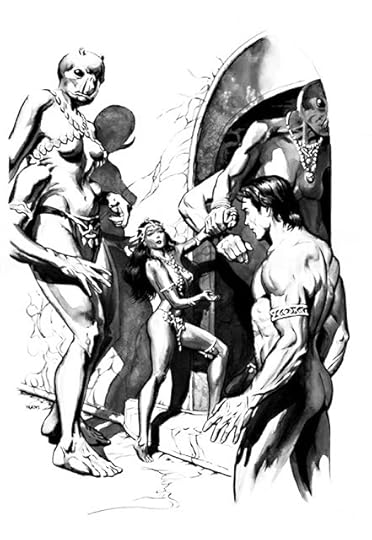What do you think?
Rate this book


186 pages, Paperback
First published February 7, 1912





Owning everything in common, even to your women and children, has resulted in your owning nothing in common.This was published in 1912, so a quote like this might not have stuck out so much back then. Of course there are many much more ancient items that seem quaint today, such as
You shall not covet your neighbor's wife, or his manservant, or his maidservant, or his ox, or his ass, or anything that is your neighbor's.I guess ownership is in the eye of the beholder.

A Princess of Mars was originally published as “Under the Moons of Mars” under the pseudonym Norman Bean in All-Story Magazine as a six-part serial, February through July 1912.He had first submitted it to All Star as Dejah Thoris, Martian Princess






“….[t]he following of a sense of duty has always been a fetich of mine throughout my life; which may account for the honors bestowed upon me by three republics, and the decorations and friendships of an old and powerful emperor and several lesser kings.”.
“My mind is evidently so constituted that I am subconsciously forced into the path of duty without recourse to tiresome mental processes. However that may be, I have never regretted that cowardice is not optional for me.”
“To a Red Martian, escape by this path would have appeared impossible, but to me, with my earthly strength and agility, it seemed already accomplished.”
“During the day, I was pitted against first men and then beasts, but as I was armed with a long-sword and always outclassed my adversary in agility and generally in strength as well, it proved by child’s play to me.”
“So with the cunning of a madman, I backed into the corner….”
“There is, there must be a way, and John Carter, who has fought his way through a strange world for love of you will find it.”


And let's not forget John Carter's favorite Barsoomian "dog" Woola. Who in my head, thanks to the otherwise forgettable movie, will always look like this insanely adorable menacing monster-cutie - SQUEEEEEE!!!!What's not to love about Burroughs' classic? Well, yeah, it's chock-full of machismo, with a generous helping of sexism, a touch of colonialism attitude, a bit of stereotyping, and with mostly wooden characters... Doesn't it sound awful? I kid, I kid, Barsoom fans. I actually enjoyed this book, believe it or not. I mean, we get a dying red planet, an atmosphere plant (!), red men, green men, Jeddaks, princesses, and of course WOOLA!!!!
Dear Santa, if I'm REALLY REALLY NICE this year, can I pretty please get a Woola puppy for Christmas??? Please???





